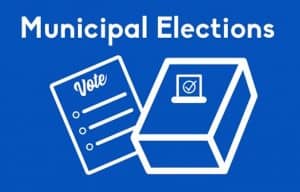Tier Two talk in Waterloo
The Oct. 21 meeting of the Waterloo School Board was heavy on discussion at the start, with a public hearing concerning the district’s administrative budget and a call to action over a much maligned piece of legislation impacting Illinois educators.
The public hearing began just before the regular meeting, centering around the limitation of administrative costs within the budget for the year.
Waterloo Superintendent of Schools Brian Charron led the hearing, explaining that Illinois school districts are legally only able to increase the budget for administrative costs by no more than 5 percent of what was actually spent the prior year.
He added there are exceptions to this rule that Waterloo falls into. As the district is ranked within the bottom 25 percent of districts in the state in terms of administrative spending per pupil, Waterloo is able to set its administrative budget beyond 5 percent of what was audited last year following the public hearing and board approval.
With no public comment during the hearing, the board did approve this action item later in the meeting, at which point Charron added that the increase to the administrative budget was deemed necessary due to the addition of a special education coordinator.
This month’s presentation from the Waterloo Classroom Teacher’s Association was provided by Gardner Elementary early childhood and pre-kindergarten teacher Jessica Billmeyer.
She offered an in-depth overview on the work she and her colleagues do, both educating young students and building their developmental foundations.
“We provide a well-rounded environment for our students to thrive by utilizing a creative curriculum,” Billmeyer said. “This is a foundational curriculum and provides research-based instruction for child development with a focus on social, emotional, physical, cognitive and language skills. We emphasize play as a vital learning tool.”
Billmeyer also shared a video featuring a number of Gardner’s young students playing and participating in class.
WCTA President Renee Koeneman spoke briefly before and after Billmeyer, noting how hers was the first in a planned series of presentations showcasing different classrooms and grade levels in the district.
Koeneman also addressed the school board and others in attendance about the teacher shortage in the country, explaining the situation is exacerbated in Illinois due to Tier Two Retirement.
“The reason we feel this is so important is because obviously all over the U.S. there’s a teacher shortage, but the state of Illinois is probably impacted the worst because of Tier Two,” Koeneman said. “Lots of politicians take money out of our teacher retirement pension plan and didn’t put in their share, so we have a Tier One and a Tier Two.”
As she described, Tier Two teachers – those hired after Jan. 1, 2011 – must work 47 years to retire with full benefits compared to 35 years for Tier One teachers – those hired before 2011.
With many teachers advising those looking to enter the profession to avoid teaching in Illinois, Koeneman shared that Nov. 13 is a lobby day during which educators – and other public workers affected by Tier Two – from around the state will head to Springfield to meet with legislators.
Waterloo School Board member John Caupert spoke up after Koeneman to echo her sentiments and note how much of an impact the pension system can have on communities like Waterloo that are so close to neighboring states.
He described how his own daughter has pursued education and was originally hoping to return to Waterloo to teach but now plans to teach elsewhere to avoid Illinois’ retirement system.
“This is something that everybody, whether we’re school board, whether we’re community member, whether we’re concerned parent, we need to educate and inform ourselves on the challenge that this poses throughout this state,” Caupert said. “I think it’s the single biggest crisis in all of public education going on in the state of Illinois right now.”
In his own report, Charron mentioned three FOIA requests – two from Southwest Illinois News and one from SmartProcure – and noted he hopes to discuss the district’s tax levy soon now that tax bills have been sent out.
“We are anticipating that we will have revenue coming in,” Charron said. “The county has, in years past, been very good about, as soon as money starts arriving, they know the organizations that are hurting to get bills paid, and they start distributing those funds right away… I’m anticipating no need for us to execute borrowing from First National Bank like we had discussed as a contingency plan.”
Regarding action items addressed by the board, the second reading of board policies Press Plus Issue 116, extra-duty assignments and the volunteer list were all approved.
The board also approved a resolution declaring a cafeteria oven as surplus property to be sold to the highest bidder.
A school maintenance grant application was also approved, with Charron explaining the state could match up to $50,000 for a maintenance project. A currently identified project is renovation of the Zahnow Elementary roof which is estimated to cost around $173,000.
The board also accepted a donation of $1,350 for the WHS Athletic Director Fund Activity Account from the Bill Schmidt Memorial Golf Outing fundraiser at Annbriar Golf Course in September.
Consideration to employ a full-time reading specialist for the school year was also approved. It was noted that the individual hired was previously working as a substitute and was brought on after a job opening for the position was advertised for 90 days.
Koeneman chimed in to ask Charron about the hiring, and he clarified the state has been approving such hirings to address the teacher shortage. Retirees can work for the district for an entire school year rather than the maximum of 100 days so long as the position is advertised and no one else is found.






